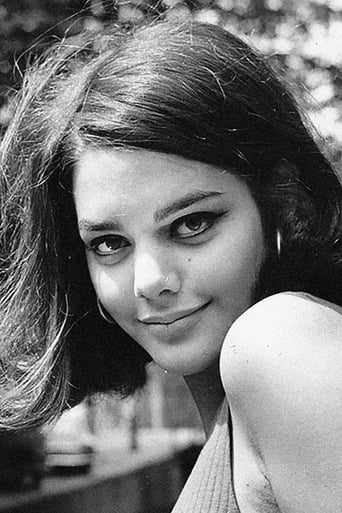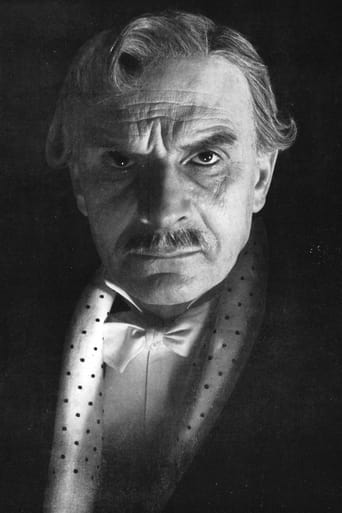Limerculer
A waste of 90 minutes of my life
Suman Roberson
It's a movie as timely as it is provocative and amazingly, for much of its running time, it is weirdly funny.
Portia Hilton
Blistering performances.
runamokprods
While the often noticed aping by Bertolucci of his hero Godard in this early film is quite true (even the film itself admits its debt to Godard right on screen), there is more here than mere imitation. Whether intentional or not I saw plenty of other influences from Bunuel, to the paintings if Rene Magritte. A loose, examination of schizophrenia; an inhibited intellectual young man spawns a separate self who is confident, aggressive and revolutionary. While vaguely based on Dostoyevsky's "The Double", this is very much it's own story, and a hell of a lot of fun. I found Bertolucci's surreal playfulness more inviting than most of Godard's work from that period. It asks many of the same questions, and has much of the same distain for modern consumer society, (and film narrative conventions) but does it with an absurdist sense of humor that give rise to some moments that now seem as much "Monty Python" as they are French New Wave. The most egregious Godard rip-offs can be annoying (sudden inappropriate music, etc), but they are for the most part mercifully brief. Mostly this is more influence and homage than theft, and creates a time capsule that still has relevance and interest, and pleasure in the watching. Pierre Clementi does a fine job playing the two different versions of the hero Giaccobe.
MARIO GAUCI
I had always wanted to watch this rarely-seen (and most Godardian) of Bertolucci films ever since I read about it in an old British film magazine of my father's. However, having caught up with it now thanks to No Shame's 2-Disc Special Edition, I have to say that I was underwhelmed, finding it overly didactic and, unfortunately, Godard's trademark dynamism and humor (in his early work, at least) are seldom evident here.While interesting and quite admirable in itself - being a loose updating of Dostoyevsky's "The Double" - the film feels dated today (especially its consumerist critique, represented by a silly musical number about "Dash", a detergent which ironically is still in use nearly 40 years on!); having said that, Godard had already attacked the same targets in 2 OR 3 THINGS I KNOW ABOUT HER (1967). Besides, Pierre Clementi's cold and arrogant personality doesn't allow much audience sympathy. Bertolucci's technique is suitably experimental - one of his most surreal touches is having Clementi's large shadow, cast on a wall, turning against him and, in a remarkable sequence, despite Morricone's lush romantic music, a date between Clementi and Stefania Sandrelli consists of them being "driven" in a stationary vehicle with Clementi's butler making do as chauffeur i.e. acting out the machine's sounds with his mouth! Incidentally, a similar scene was depicted in Jerzy Skolimowski's LE DEPART (1967), another experimental film I caught up with recently and which also left me somewhat disappointed.Apart from reflecting on politics and modern society, the script contrasts contemporaneous attitudes in theatre and cinema. Sandrelli, although looking positively gorgeous as a blonde, seems uneasy in this environment (even if she did go on to make 3 more films with the director) but Tina Aumont's contribution (who expires unconventionally at the hands of Clementi at the end of the afore-mentioned musical number) is rather delightful. The film's colorful widescreen photography makes great use of its Rome locations, while Ennio Morricone's eclectic score serves more often than not as ironic comment on the action.Not an easy title to appreciate, therefore, and Bertolucci has certainly made more involving films but, at least, the DVD extras prepared by No Shame (this is their first release I've sampled) - particularly the fascinating and lengthy interviews with Bertolucci and film editor Roberto Perpignani - are excellent indeed! An interesting piece of information gleaned from the supplements is that the film's script was rarely adhered to and neither were current conventional Italian filming techniques (the sound was recorded live); besides, Pierre Clementi flew every weekend to Paris and reported back to Bertolucci with the most up-to-date slogans spouted by the protesters in those famous May 1968 riots, thus enabling him to incorporate them into his film like "Vietato Vietare" (It is forbidden to forbid) and "Proibito Proibire" (It is prohibited to prohibit)...
valadas
Yes we know that many people think that life is absurd and meaningless and society is hopeless. Fortunately many more still think that life has a meaning and society can be reformed and changed. This movie also intends to pass another message which is that life is not real and only the theatre is real. Well the great German poet, Novalis, once said that poetry is the absolute real but that had quite another sense perhaps. Anyway what we watch here is a succession of scenes and dialogues void of any meaning at all and of any plot that can be followed. Bertolucci is a great film director but I think that this movie doesn't honour him at all.
darth-chico
After that it degenerates into an exercise in employing old art film cliches. Though he bases his movie on the Dostoyevsky story 'The Double', Bertolucci apparently has no message, and no original way to present it. By the end this movie has dragged you through a tedium of stupidity and indulgence. This is the kind of film that gives art movies a bad name. 4/10




